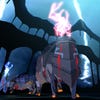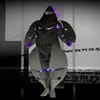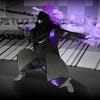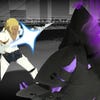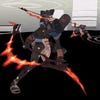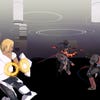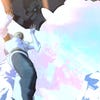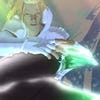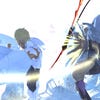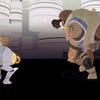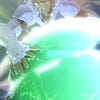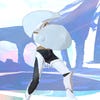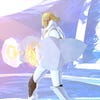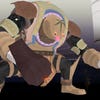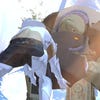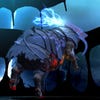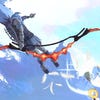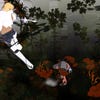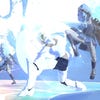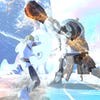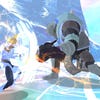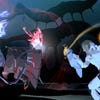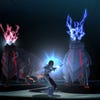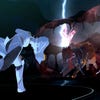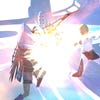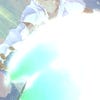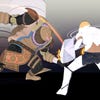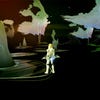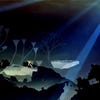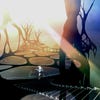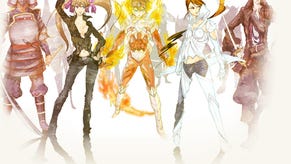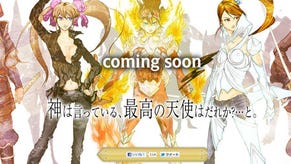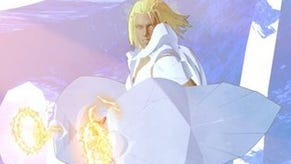El Shaddai: Ascension of the Metatron
Shaddai or shouldn't I?
This is where I would traditionally attempt to give you the bare bones of the plot, but frankly I have absolutely no idea what's going on, and in fact I suspect that El Shaddai is all the more glorious when you don't understand what's happening.
You play Enoch, the aforementioned blonde angel hunk. Then there's Lucifel, with his carefully spiked hair, host-bar outfit with undone shirt, mobile phone and translucent plastic umbrella, eternally out of place in Ascension of the Metatron's luminescent, ethereal worlds. He's the narrator, dropping in and out to stroll casually about a paused scene, talking in riddles and offering advice, or leaning against a pillar having a chat about how you're doing on his mobile (and, helpfully, offering you the opportunity to save).
The wonderful thing about El Shaddai's story, art direction and style is that it's not self-consciously Japanese. Most jaw-droppingly beautiful games - Odin's Sphere, Muramasa, Okami - retreat into traditional art to find their style, but El Shaddai is futuristic, science-fictional, psychedelic.
There's a fantastic motorbike interlude in Chapter 5 where it suddenly turns into Tron; then it very comfortably transforms again for the next chapter, dropping you into a washed-out negative of an Escher-like geometric landscape. The music, too, varies from quasi-religious chanting and wailing to minimalist electronica and, occasionally, the odd J-rock guitar, never clashing with its visual context. It's astonishingly comfortable with regular aesthetic reinvention.
It's not quite so happy to reinvigorate the gameplay, though, which is the one thing that counts against El Shaddai. Once you've learned to use the three weapons effectively, which didn't take me more than a few hours of experimentation, there are no new combat innovations to look forward to, and the enemies are similarly limited to the same three fighting styles throughout, however various their forms.
It can also be a total bitch at times, particularly the bosses. It's not afraid to be difficult, which is something I really like in a game, but which can also undoubtedly be frustrating. The platforming requires a real feel for distance and timing, and it's very strict about whether or not you've landed exactly on a surface - come down just at the edge, and you'll fall off.
Falling is actually more of a problem in the 3D sections, where El Shaddai's incredible art very occasionally gets in the way of being able to see where you're supposed to go. Lose your rhythm in the fights, meanwhile, and the tide quickly turns.
But I'm continually drawn back to the way that El Shaddai makes me feel. Like Bayonetta, like Rez, like Okami, it changes the way you think about games - and yet it's remarkably unpretentious. It's not got quite enough gameplay meat on its bones to position it alongside those classics, but it's been the most refreshing experience of the year so far, and visually it truly is incomparable.
Plus, and most importantly to me, it's stratospherically mad. At the point where I emerged out of a narrow corridor into what turned out to be a vast stadium and a gyrating dance master exploded from the sea in an outfit that would make Lady Gaga proud, I almost collapsed with joy. If that sounds like you, this could the best thing you buy this year.

